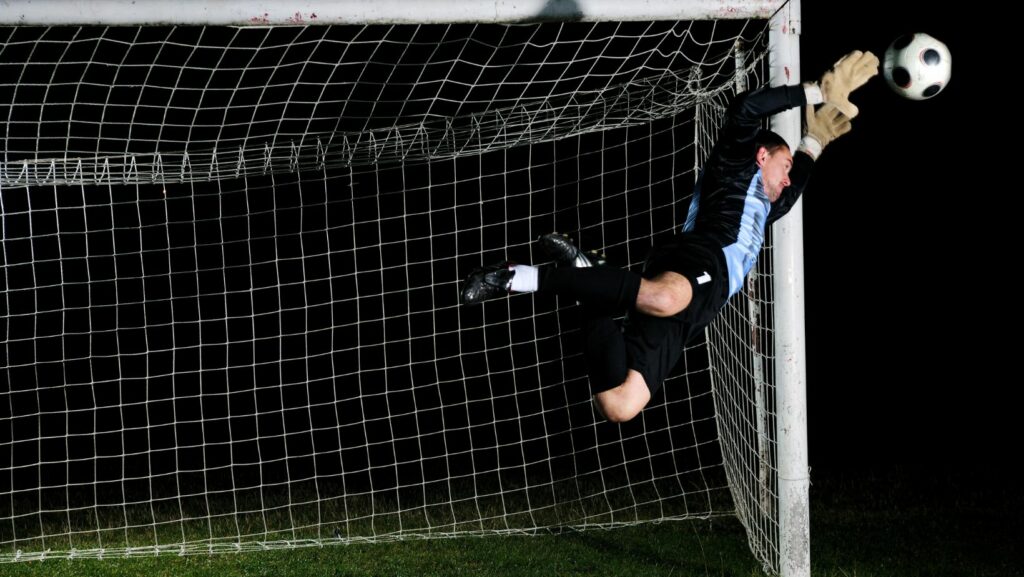Goalkeeping is one of the most demanding positions in soccer, requiring a unique blend of physical prowess, mental agility, and quick decision-making. As the last line of defense, a goalkeeper’s performance can make or break a match. Whether they’re diving to save a penalty or organizing the defense, mastering this role is essential for any aspiring player.
How to Get Better at Goalkeeping
Aspiring goalkeepers can enhance their skills by focusing on key responsibilities and essential skills required for the role. Mastering these elements contributes significantly to overall performance on the field.
Key Responsibilities of a Goalkeeper
-
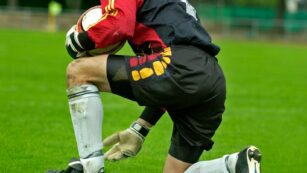 Shot Stopping: A goalkeeper must consistently block shots on target by reacting quickly and positioning themselves effectively.
Shot Stopping: A goalkeeper must consistently block shots on target by reacting quickly and positioning themselves effectively. -
Organizing Defense: It’s vital to direct defenders and maintain formation during set pieces like corners and free kicks.
-
Distribution: Goalkeepers should accurately deliver the ball to teammates, either by hand or foot, to initiate counter-attacks effectively.
-
Communication: Clear communication with teammates is essential for coordinating actions and ensuring everyone maintains awareness of their roles.
-
Reading the Game: Anticipating opponents’ movements and understanding game dynamics enables goalkeepers to make informed decisions.
-
Agility: Agility is crucial for quick movements and making saves in various positions.
-
Coordination: Excellent hand-eye coordination aids in catching, punching, and distributing the ball accurately.
-
Positioning: Being in the right place at the right time enhances a goalkeeper’s chances of making successful saves.
-
Mental Toughness: Developing resilience helps goalkeepers cope with pressure and bounce back from mistakes.
-
Footwork: Strong footwork facilitates quick lateral movements and effective positioning during active play.
Techniques to Enhance Goalkeeping Skills
Improving goalkeeping skills requires focused techniques. Below are effective methods for refining specific aspects of goalkeeping.
Improving Reaction Time
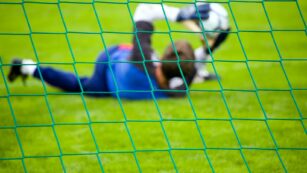 Improving reaction time is crucial for goalkeepers. They can practice drills that involve unpredictable shot-stopping situations. Exercises like reaction balls, wall-bouncing drills, and partner passing enhance reflexes. Goalkeepers should also engage in agility ladder drills to sharpen foot speed. Consistent practice increases awareness, enabling faster responses to on-field situations.
Improving reaction time is crucial for goalkeepers. They can practice drills that involve unpredictable shot-stopping situations. Exercises like reaction balls, wall-bouncing drills, and partner passing enhance reflexes. Goalkeepers should also engage in agility ladder drills to sharpen foot speed. Consistent practice increases awareness, enabling faster responses to on-field situations.
Mastering Diving Techniques
Mastering diving techniques is essential for effective shot-stopping. Goalkeepers should start by perfecting their starting stance. They should focus on lowering their center of gravity, helping with swift movements. Practicing side-to-side diving drills strengthens core muscles and improves flexibility. They can utilize mats to simulate game scenarios and catch or deflect shots while diving. Consistent technique refinement builds confidence and increases overall effectiveness during matches.
Physical Conditioning for Goalkeepers
Physical conditioning plays a vital role in a goalkeeper’s performance. Goalkeepers must develop strength, agility, and flexibility to effectively execute their responsibilities on the field.
Strength Training for Goalkeepers
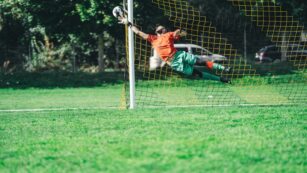 Strength training enhances a goalkeeper’s ability to make powerful saves and maintain stability while facing shots. Key exercises include:
Strength training enhances a goalkeeper’s ability to make powerful saves and maintain stability while facing shots. Key exercises include:
-
Squats: Build leg strength and improve explosiveness during jumps.
-
Deadlifts: Strengthen the posterior chain, crucial for overall stability.
-
Bench Press: Develop upper body strength for diving and reaching high shots.
-
Core Exercises: Planks and Russian twists strengthen core muscles, aiding in balance and body control.
Incorporating these exercises into a regular workout routine increases physical resilience and prepares goalkeepers for the demands of match play.
Agility and Flexibility Exercises
Agility and flexibility are essential for quick movements and injury prevention. Effective exercises include:
-
Cone Drills: Enhance lateral movement and quick directional changes.
-
Ladder Drills: Improve foot speed and coordination, vital for quick reactions.
-
Dynamic Stretching: Engages muscles through controlled movements, increasing overall flexibility.
-
Yoga: Boosts flexibility and promotes mental focus, contributing to overall performance.
Engaging in these exercises regularly helps goalkeepers respond swiftly to game situations while minimizing the risk of injury.
Mental Aspects of Goalkeeping
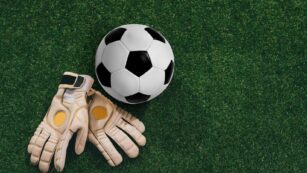 Improving as a goalkeeper goes beyond physical skills and techniques. It’s about developing a strong mental game. A confident mindset can make a significant difference in performance. Goalkeepers face immense pressure and must remain composed under challenging situations.
Improving as a goalkeeper goes beyond physical skills and techniques. It’s about developing a strong mental game. A confident mindset can make a significant difference in performance. Goalkeepers face immense pressure and must remain composed under challenging situations.
Practicing visualization and positive self-talk can help build mental resilience. Embracing challenges and learning from mistakes fosters growth. Additionally, strong communication with teammates creates a supportive environment, making it easier to handle high-pressure moments.
Ultimately, dedication to both skill development and mental preparation will elevate a goalkeeper’s game. With consistent effort and the right mindset, any aspiring goalkeeper can reach new heights in their performance.

